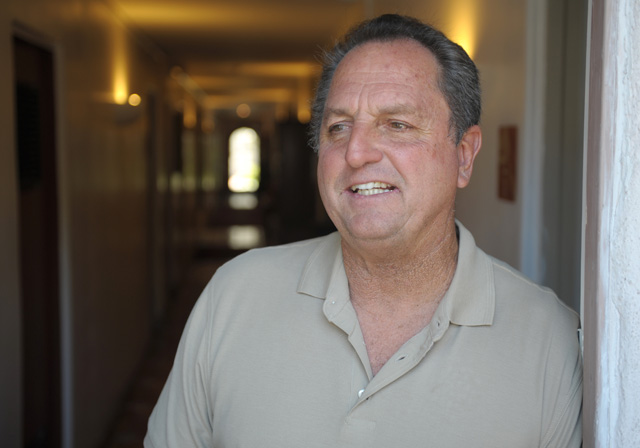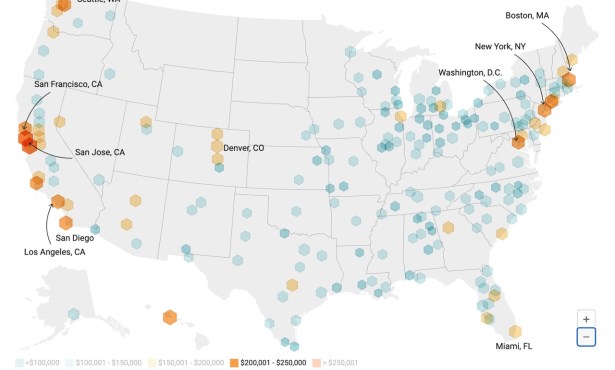Eight Months and Counting
Tempers Mount in Dario Pini Receivership

In case anyone’s counting, it’s been eight months since eight of Dario Pini’s properties in Santa Barbara were put under a receivership. Two of them had bids accepted three months ago to repair the extensive code violations that gave rise to the receivership. Two properties have been tented for vermin, with one other stymied because a tenant won’t sign the fumigation waiver or leave the apartment. A fourth property is so far gone it faces demolition. Judge Colleen Sterne, who for months has been warning that her patience is not endless, last Friday hurled one brick against the wall of obstruction the case has been encountering: “If I do figure out it’s on one side,” she said, “I will not be happy.”
The judge’s words came toward the end of the monthly recitation of ills on November 30, but only after she had smacked herself on the forehead to underline her dismay that the landlord was again doing work without permits, one of the chief causes of the receivership order. Additionally, December meant property taxes were coming due for the properties described as “starved of cash” by successive speakers. It turned out the receiver had been holding money in the correct expectation that he would pay the taxes; some lenders had escrow accounts accumulating funds for the taxes; and Pini expected to pay them as well. They were told to meet and confer.
In the constant noise of disagreement, the heaving mass of major repairs desperately needed at the long-neglected properties has almost been lost. Since September, Sterne reminded, Pueblo Construction’s bids have been approved for the Mission and Arrellaga street properties. The attorneys for Dario Pini and the receiver, William Hoffman, immediately began to accuse the other of delaying finalizing the bid – it’s not signed, said one; it’s in the court’s report, said the other – until Sterne had had enough, calling the bickering “nonsense” and observing that in 2018, a person could push a few buttons and send a document: “This is childish. If someone asks for something, give it to them.” Making the repairs is another matter, as no money has yet materialized from the landlord, his lenders, or any third-party lender, a process Hoffman’s attorney Fernando Landa pointed out took 90 days and a court order.
The judge dealt her rebukes all around. The city’s Matthew Silver, “wound up” about the proceedings and speaking urgently about “children covered head to toe in bed bug bites,” received a gentle lecture on court procedure. Pini’s attorney Paul Burns was pleasantly told to back off when he began to ask for a written commitment on something; the bench didn’t let him finish his thought.
As for the issue of vacant apartments leading to a drier income stream, Hoffman’s professional opinion was that “the vast, vast majority of the units are uninhabitable” and “people shouldn’t be living there.” He also said the properties were “starved for cash” and faced nonpayment of utility bills. Burns countered with a charge that Unit H at Carrillo Street, for example, was and always had been totally habitable and should be rented out for its income. In reply, Judge Sterne said, what we have here was a case of the snake with its tail in its mouth. Funds are needed to fix the apartments so that people can live in them. If tenants are moved in, are they then moved out so repairs can be made?
It’s a conundrum that will go unanswered until the next hearing on January 11, along with a couple others. Will Dario Pini produce the millions he claimed to have in April 2018 to repair the eight properties and get them back into his possession? Or will they go bankrupt first? which his attorney claimed would happen in April 2019.


